
We've heard a lot from politicians, lobbyists and activists this week about the Safe Schools Coalition program, but we haven't heard much from the young LGBT people who may have benefited from it. Here's what they have to say about growing up queer in Australia.
"I haven't come out to anyone in real life but all my friends [online] know I'm transgender. Most my friends are a part of LGBT+, too.
We've had slurs used against us, watched teachers tell a lesbian couple to stop holding hands while heterosexual couples hug and kiss a few metres away from them.
The use of slurs in an everyday environment and the lack of teachers calling out students for using said words irks me, too. I told a classmate not to use "tranny" and she ended up pitting all her friends against me. - Scout, 15.

"When I was younger I wanted nothing more than just to fit in. We moved around quite a bit and when you’re always the new kid you want nothing more than to feel like you belong somewhere. Just as I was hitting the developing stages of puberty, we immigrated to Australia and I had to start high school somewhere new.
My family is quite Catholic and I went to a Catholic high school, so from the start there was already a set notion of what the 'right' relationships are and what the 'right' attractions were. I saw gay kids being bullied, and 'faggot' or 'poofter' being thrown around every couple of minutes, and it just created this idea in my head that this was a bad thing to be.
By year ten, naturally I was a mess. I’d spent my whole life in this culture and it was chipping away at me bit by bit. I started thinking about hurting myself and committing suicide to just end all the conflict inside my head. I was so lonely and isolated, I was too scared to talk to my friends and couldn’t show any signs to my parents because I don’t know how they would react (to this day I’m still not out to them). I felt like I was about to explode and just needed help, thank god I spoke to one of the school counsellors (who had previously been my English teacher) and she helped through this horrific time.
I know that without a doubt that counsellor saved my life. But I could only speak to her because she had been my teacher before and she was really tiresome in finding out what was truly bothering me. I don’t know what would’ve happened to me if I didn’t ask for help or went to a different counsellor who was prejudiced against LGBT people or who was deeply religious.
So when I hear about new initiatives like the Safe Schools Coalition, I’m grateful that there’s a program out there helping young kids - both LGBT and non-LGBT alike - understand what it’s like to be different and to never feel ashamed of who they are. If it helps just one lost kid out there start accepting themselves before they get to the brink like I was, surely we’re doing something right?" - Michael, 20-years-old
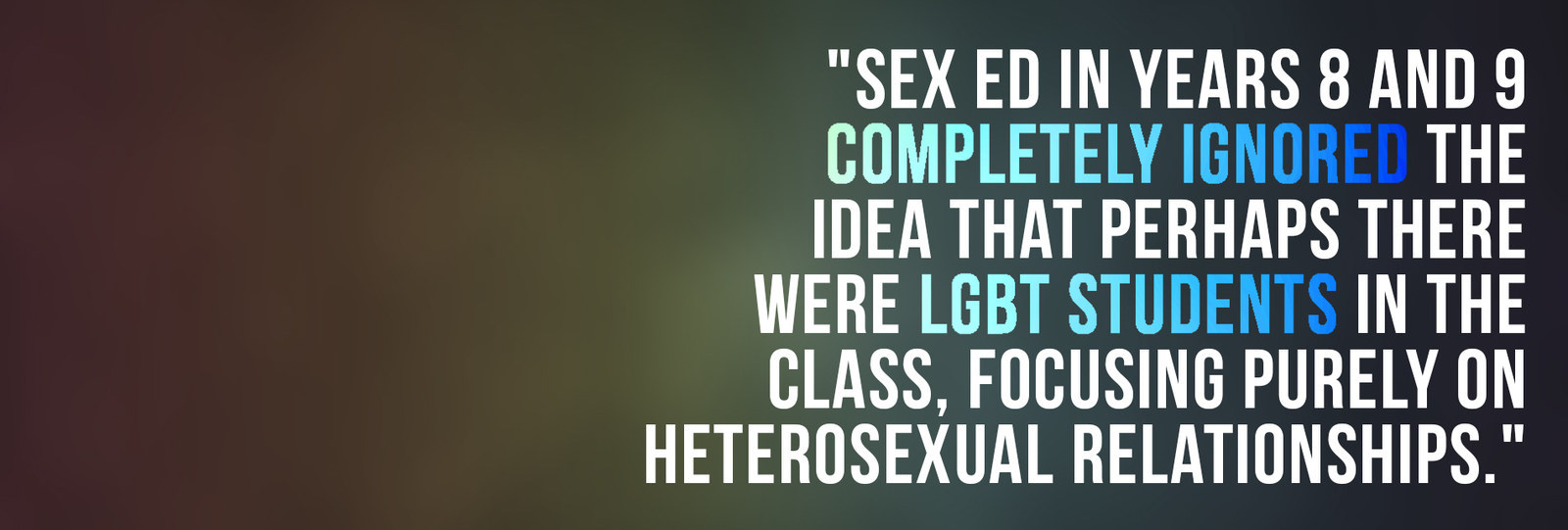
"I came out to my guidance counsellor in year 12 at high school. I went to a deeply Catholic college in Mornington, Victoria. I would say it's a pretty conservative area, mostly white and mostly liberal.
In my second session with her she expressed her concern for my "condition" and told me it was a phase. After some argument and a lot of confusion I told her it wasn't a phase and she concluded that it would be better for my life and my family's life if I didn't come out and just lived a "normal" life.
So for the next six years I tried to be "normal". I dated guys and developed horrendous anxiety and depression. In the 6th year (age 23) I decided enough was enough and came out... I immediately felt a weight off my shoulders!!! My friends were amazing, my family suspected and didn't care as long as I was happy and I am now a very happy person living my true life!!!" - Courtney
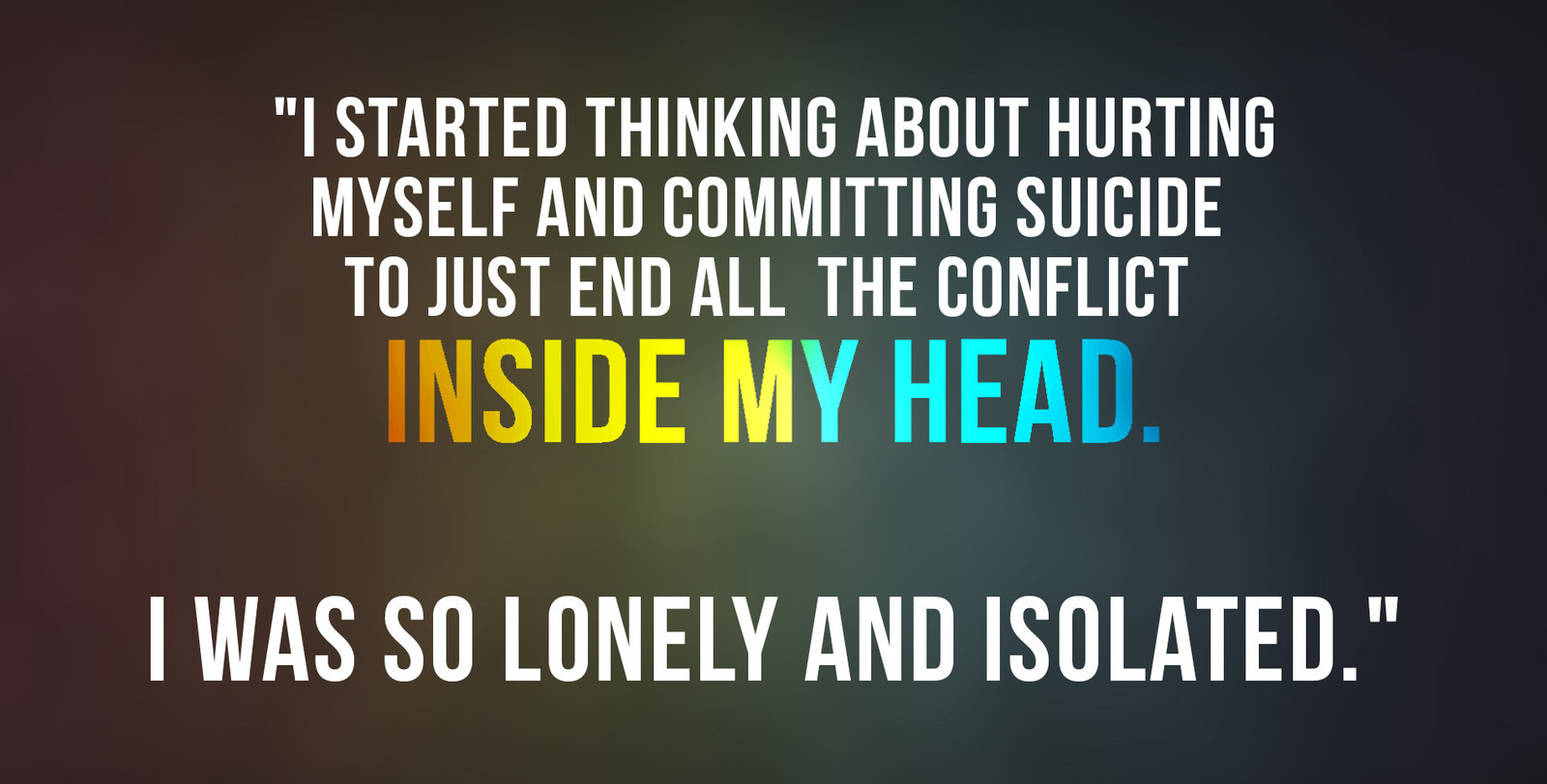
“I didn’t learn the word “transgender” until I was 17 after stumbling on it on YouTube. By that time I’d gone through an irreversible puberty that was completely wrong for who I am.
Despite my parents and friends being such a support in most areas of my life, they couldn’t understand what I was going through and talking through my emotions and feelings inevitably became awkward and emotionally distressing.
It took me years to finally research, discover and put words to my experiences and by that time I was an adult and had had years of my life taken up by needless anxiety, depression and feelings of loneliness.
I’d had to stop doing sport and extra curricular activities while my academic study suffered as I became extremely sick at the age of 16. It wasn’t being trans that made me feel so isolated at school it was the fact that I did not have the freedom or support to be myself.
If I or if any of the people around me had had the knowledge or understanding of LGBT experiences, then I honestly believe that I would not have struggled so much with my own identity. Now surrounded by amazing support.” - Rory, 20, a transgender man
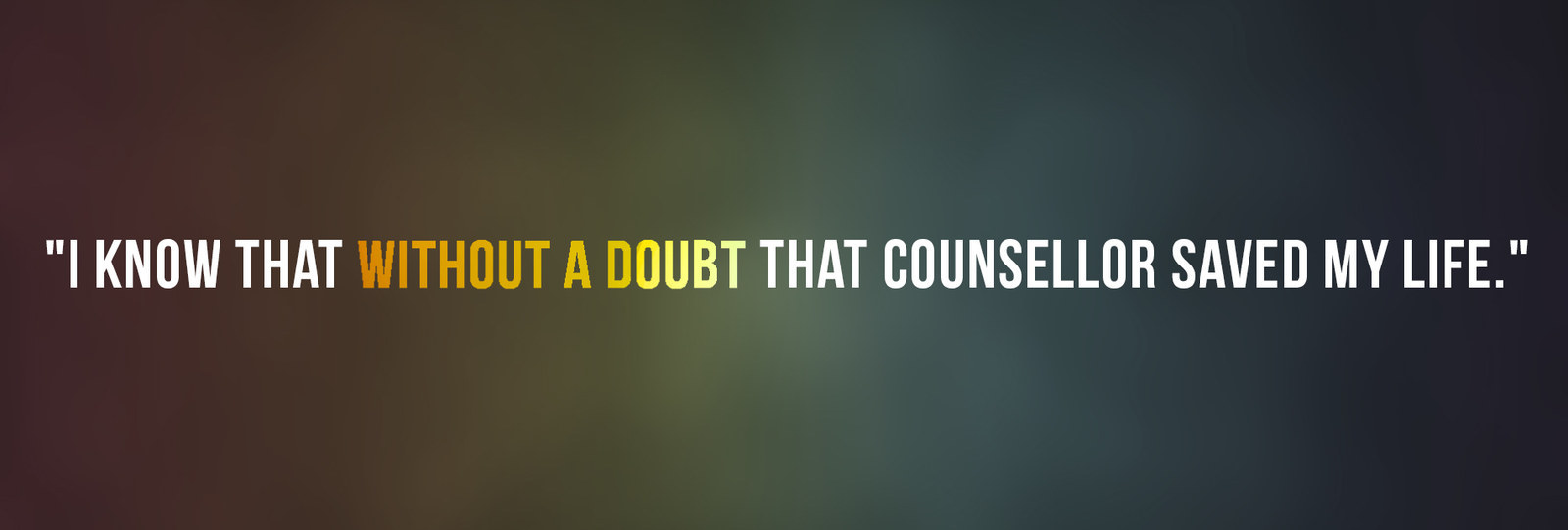
"I was very lucky in a sense when I came out. My parents and all of my closest friends were very supportive. I didn't experience constant bullying from others during school but there were a few times that I felt very insecure about expressing who I was to others.
I think the worst experience I had while at school was after an 18th party and someone had started a rumor that I taken advantage of highly intoxicated (straight) girl when all I did was try to help her sober up, held her hair back when she puked and was a shoulder for her to lean on when she passed out.
None of her friends bothered to help her that night so I did. When I got to school on the Monday I felt like all eyes were on me, everyone was talking about me behind my back and saying that what I 'did' was disgusting and could be classified as rape.
When I eventually couldn't take anymore I told some teachers what was going on, a few were very helpful but some just didn't know what to do or how to handle the situation and told me that maybe I just shouldn't be so nice to other girls if I don't want things to spread.
This then lead me to rethink every interaction I had with another female while I was at school. I was scared to say the normal "I like your hair/nails/makeup today" because I was terrified that they would somehow take it as me confessing my love for them. This also didn't help the anxiety issues I was already experiencing due to the stress of VCE." - Abbie, 18, identifies as gay
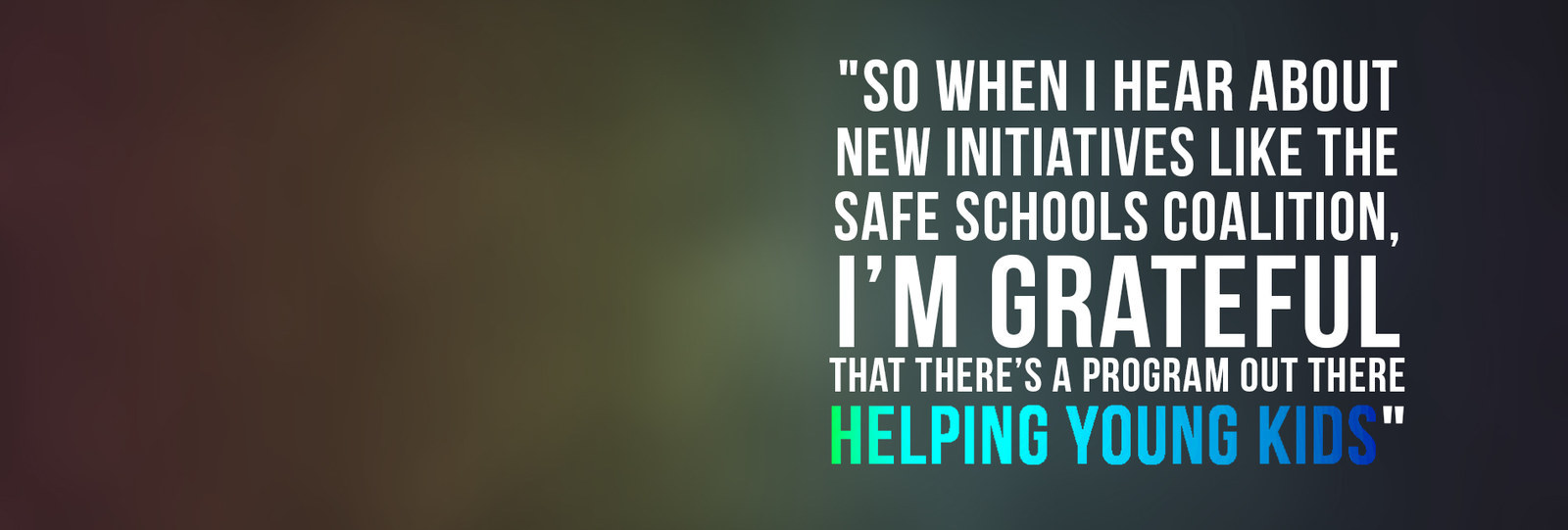
"I'm 19 this year, and I'm still not comfortable coming out to everyone in my life. I've known I was different since I was about 10, but it wasn't until I was 16 that I realised I might like girls as well as liking boys.
It was at the beginning of 2013, and I realised that I might like girls when I saw this girl (who up until now I just thought of as a friend that I wanted a closer relationship to) come down the stairs and grin at me, and my heart started thumping really hard and I felt like my stomach was trying to come out of my mouth.
I tried to repress it a little, but I ended up coming out to one of the mothers at my dance school before I told anyone else. She made it very clear to me that what I felt was okay, and completely normal, and that I shouldn’t ever try and push down any emotion, no matter what it was.
This was hard for me to understand at first, because in my health class in year 9, the only thing that I remember was our teacher telling my entire class not to come out in high school, because kids were cruel and you were just inviting people to bully you.
That teacher’s statement has stuck with me throughout the years, and it’s only in the past few months or so that I’ve felt comfortable coming out to people outside my immediate family." - Hannah
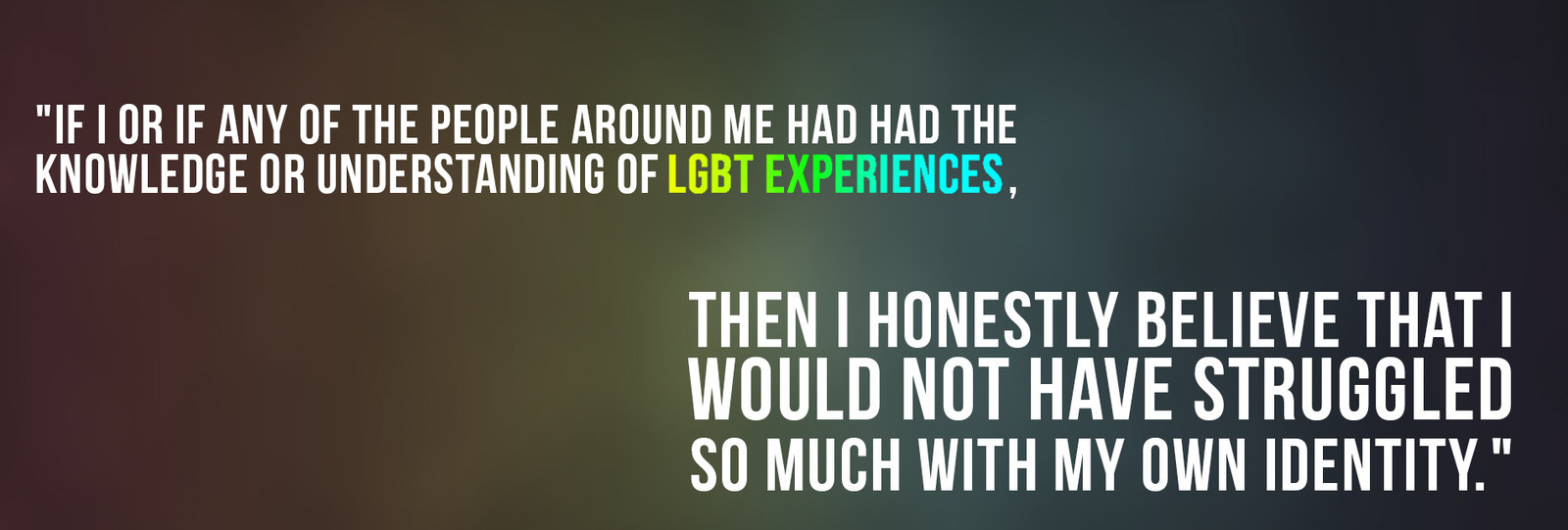
"Personally, my experiences at school haven’t been touched by Safe Schools, but I think that provides a bit of evidence as to why they are so important. I haven’t experienced any outright explicit homophobia; which makes me one of the lucky few.
This said, internalised societal homophobia is rife in schools, and the environment around me at the time I felt ready to come out pushed me back further into the closet. Whilst I had grown to accept my identity, mostly after pioneers of the gay community spoke out about their experiences, many online, I still felt as though those around me wouldn't be accepting.
As school captain of my high school, I felt as though if I told even my closest friends my identity, that it would spread around the school, ending in the platform I had being taken away from me. In the beginning of my high school, almost every day I’d have an accusation that I was gay, which sort of solidified in my mind that my identity was a negative thing, something that I should furiously deny, which I did.
Even after I came out to my parents at the end of year 10 I was still reluctant to come out to many people at school; the traditional masculine straight boy groups were still causing me fear for the next six months.
Sex ed in years 8 and 9 completely ignored the idea that perhaps there were LGBT students in the class, focusing purely on heterosexual relationships, something that obviously impacts on my relationships now. The worst instance of homophobia I’ve heard from people around me was aimed at my boyfriend, who attends a private school. He entered the bathroom at his school, and heard a couple of guys say “hey it’s [name], let’s get out of here!”, upon which they then ran out of the bathroom. You can only imagine how these same guys would react upon seeing a trans guy enter their bathroom.
Safe Schools is important because we need to be able to express our sexuality at school. We need to be able to feel comfortable about who we are whilst at school, with our families and in general.
Schools are the place where we are meant to find ourselves, where we are meant to feel comfortable and make friends, but without programs advocating for inclusion and acceptance, there will still be kids who experience homophobia and transphobia. These issues can no longer be seen as lesser, these are issues at the forefront of the civil rights fight of our generation, and we can’t let homophobic conservative politicians dictate to us the value of our identities." - Brady, 17, identifies as gay.
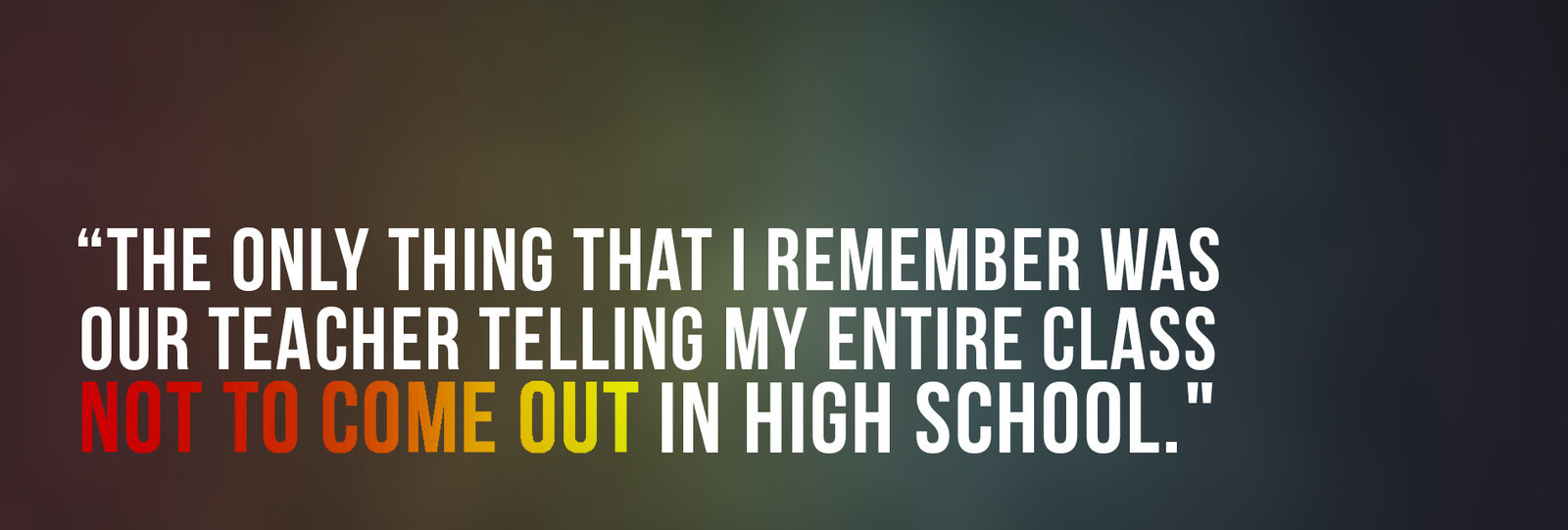
"I figured out I wasn't straight when I was about 14, but I didn't feel comfortable with it until I left high school. My school wasn't super conservative, but didn't have support systems for LGBTQIA kids either.
I probably learnt more about sexuality and gender from Glee than I did from six years of high school. It wasn't even that people were intentionally homophobic, but that friends would say stuff that they didn't realise was hurtful. One of my friends was even outed without their consent. I only felt comfortable with who I was at when I started uni and found the queer collective." - Roison, 19, identifies as bisexual.
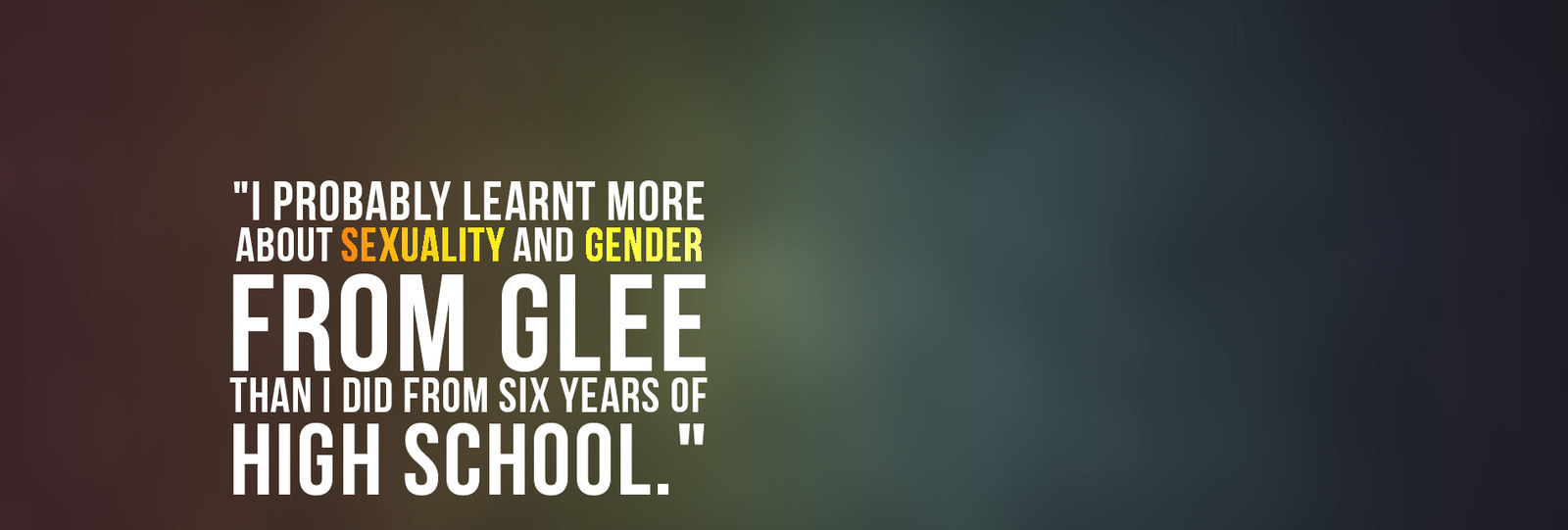
"One time in grade 10 when I had a crush on a girl and didn't really deny it, a group of boys found me, cornered me, and called me a dyke over and over again. When I was in grade 6, which was when I was just starting to explore my attraction towards girls, when this guy caught me staring at this girl I liked in class and he turned to his friends and imitated me staring at this girl. He called out to her and told her in front of the entire class.
Growing up, I always felt that I was never learning about me. It was always about a man and a woman, never ever about anything to do with queer people. It took me a long time to figure out who I was sexuality-wise, and when I came out when I was 16, nobody could relate to me.
I'm lucky because we live in a world where coming out is accepted, but I never felt like I had heaps of people to talk to and look up to. It's almost as if we were left to decide for ourselves without having both sides of the story.
Instead of knowing I was queer since I started my education I was taught how to be straight and I hated myself. After I came out, people heard what I had to say, said 'cool' and then left it at that. There was never any conversation about it and nobody would talk openly about questioning their sexuality because we were taught to be straight or be silent." - Sophie, 18, identifies as bisexual.
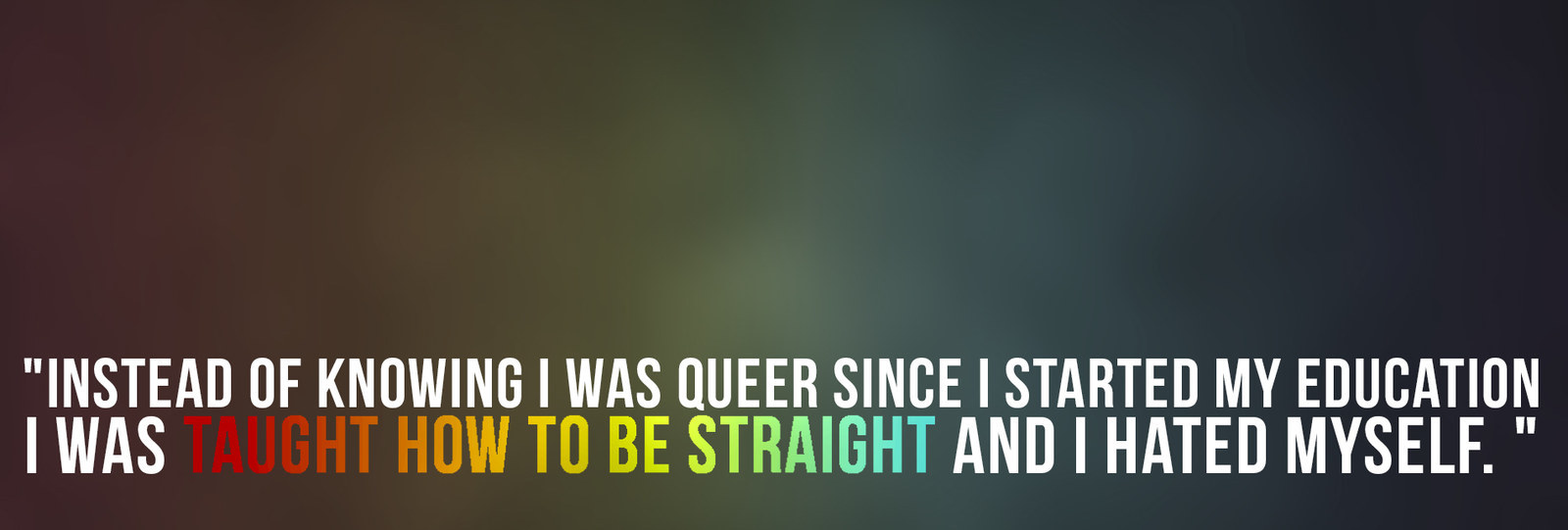
"The majority of the issues I faced throughout school were based purely around a lack of knowledge and an excess amount of fear. Anything that can educate people and cut down the fear of the unknown is something all schools should require.
I once got into an argument with someone about football, and they ended up calling me a dyke for disagreeing with them - it wasn't about whether I liked girls or not, it was about humiliating me.
Teachers starting and leading discussions about 'trannies' in male prisons, and laughing when an argument between students began. Conversations about same-sex marriage and LGBT couples adopting would take place with no thought about whether any LGBT kids were in the classroom, and how they'd feel when 'freedom of speech' was more important than making them feel comfortable in their own school. - Kelsey, 18, identifies as gay.
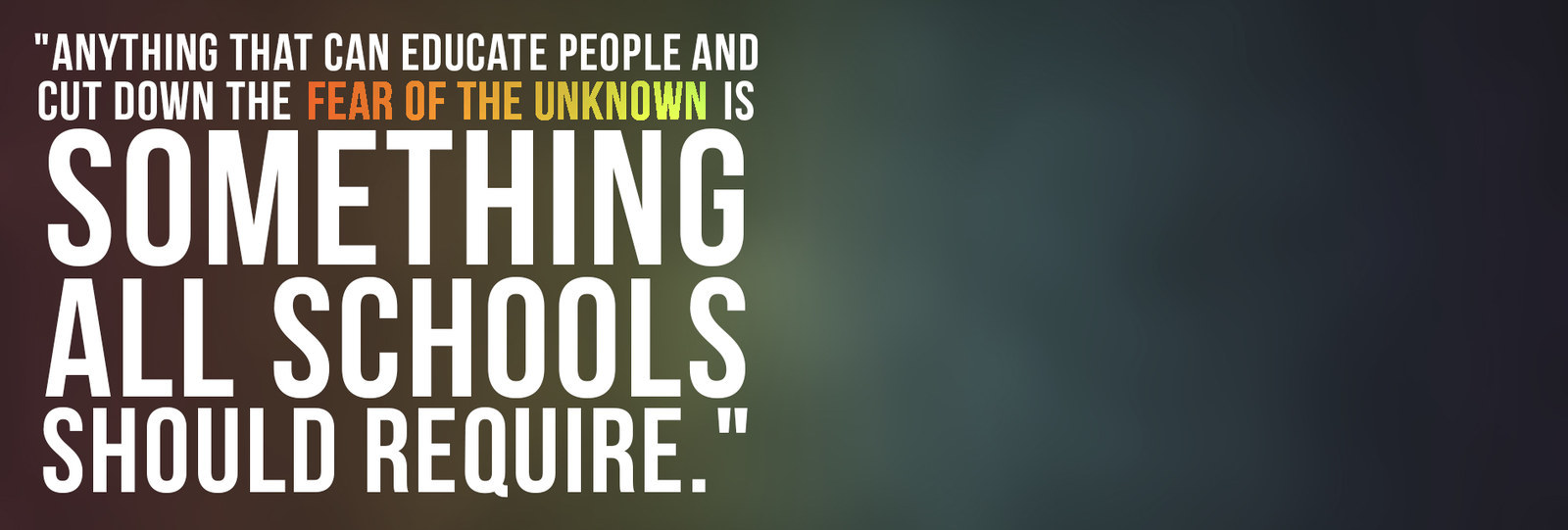
"I grew up in the relatively new outer Canberra suburb of Calwell. It was as this suburb grew that I grew into a young person. I was to the outside world a lanky, geeky, pubescent male with all the hallmarks of someone you expect to be playing dungeons and dragons at lunchtime. This was my youth. It was not fantastic or is something I choose to visit often. My primary issue throughout high school (and primary school for that matter) was bullying. Due to the fact I never really showed any interest in anyone (male or female) and my dislike of almost all sporting activities meant it was assumed I was gay.
I was bullied. Bad. I remember being told I was gay or a tranny, or something similar since I was about 13. I remember people chasing me down the corridor to hit me for in any way appearing gay. I remember one day being told I was gay by another student at a party I went too. So strong was their conviction I was gay that they even gave the evidence that they had seen me hugging another boy. I of course didn’t respond. I was taught, rightly or wrongly, that defending yourself against bullies would mean they got bored and stopped. Bullies took that response as a challenge. The boy I was hugging was a friend who had just been told his sister had been raped by their uncle for the last three years. When she [the sister] finally came back to school, she herself was called a lesbian.
I went into a deep depression at this stage. Wandering the school in a sort of stupor at lunch and recess. Ignoring my friends. Ignoring everyone. This wasn’t the first time, but this was the worst.
Clearly being gay, or trans, or a lesbian meant you were in for a life of cruelty. The one thing that really drove this idea into my young adolescent brain was when I was crash tackled outside in one of the depressive wanderings and had deodorant sprayed on me by a gang of other students and then someone tried to set me alight. All the time they called me “gay fag.”
At the end of the day I went home and tried to kill myself.
The next day I went to school again, and hoped that I could report this incident. I did so and it turned our that my main attackers were not even from my school. They had been told of me by students from my school and helped to find me. They attacked me on school property then left. No one would admit to even the relatively minor (in the school welfare officer's mind) crime of supporting them.
I was on my own. So I kept my darkest secret, that I liked to cross dress and I wanted to be female, a very closely guarded secret. Lest their be a similar incident.
It wasn’t until years of repression, secret cross dressing, and lying to myself that I finally came out as a trans women to my friends and family. And I have never been happier in myself.
I really hope that there is another kid out there like me who is able to actually feel safe at school being who they are, and that people realise that they are important and should be safe. - Anne, Canberra
*Some of these stories have been edited for clarity.
To learn more about depression, check out the resources at BeyondBlue Australia or ReachOut. If you are dealing with thoughts of suicide, you can speak to someone immediately at Lifeline Australia on 13 11 14.
